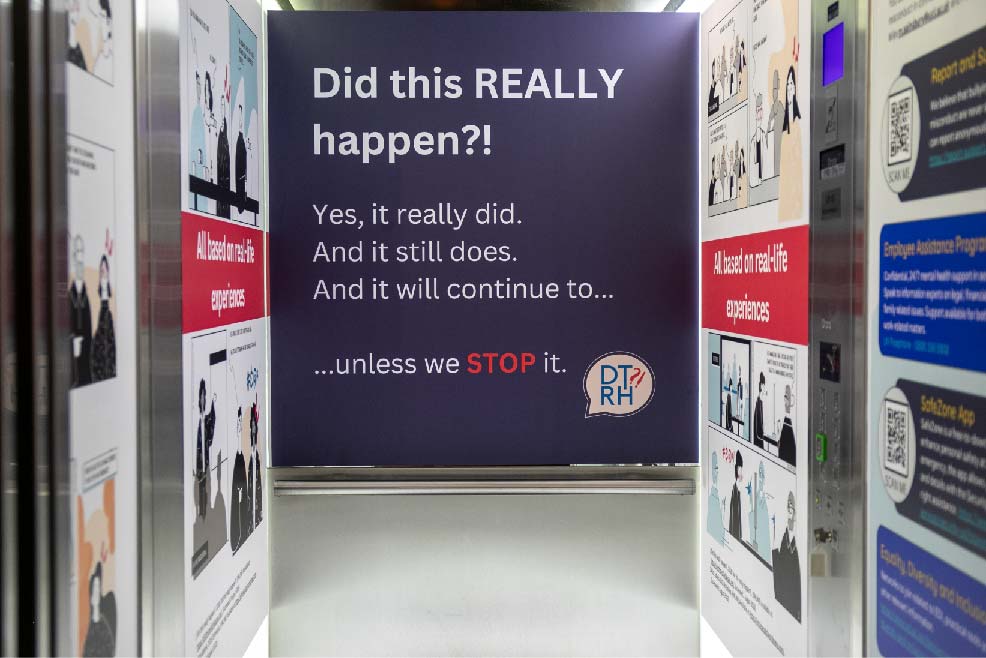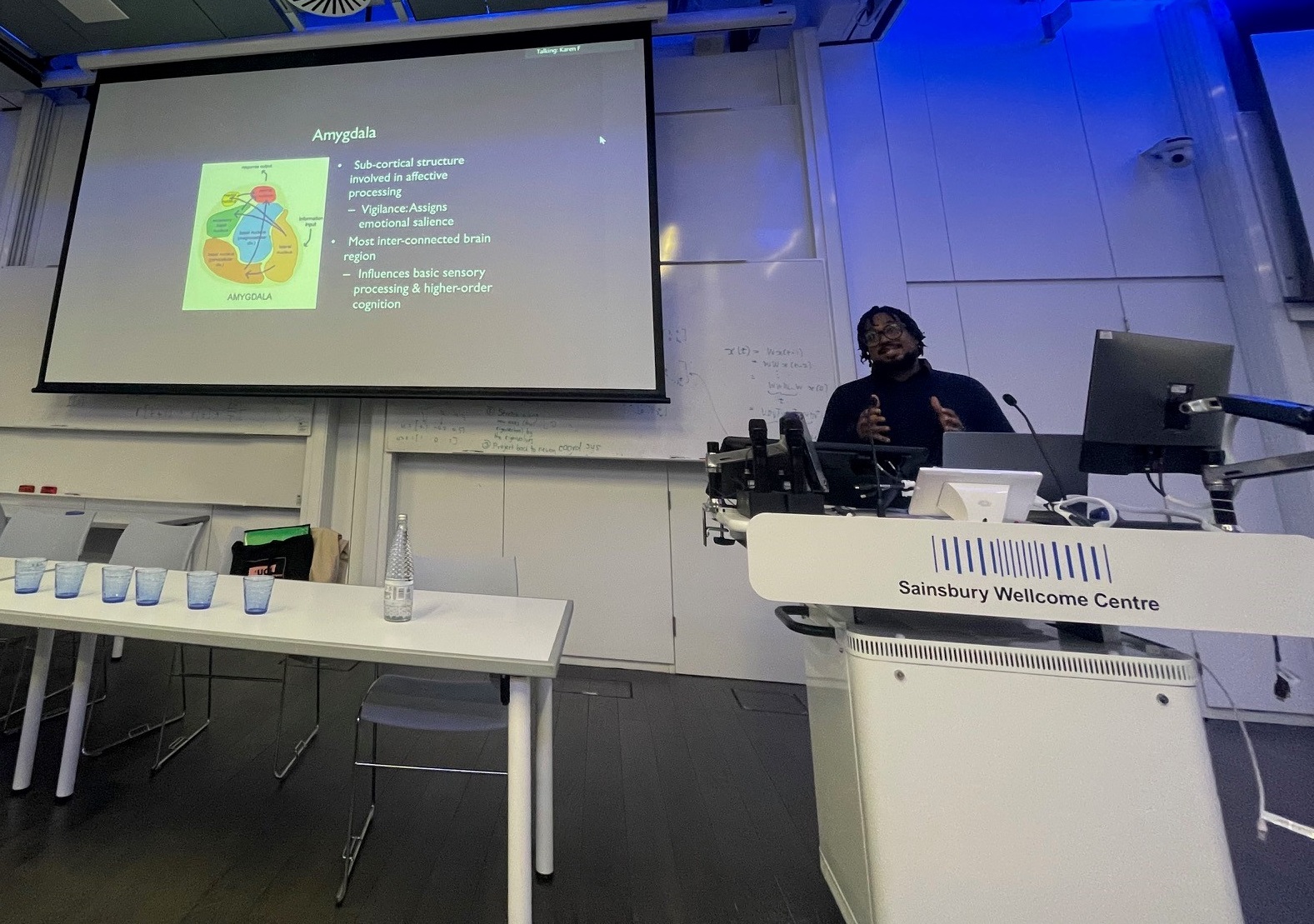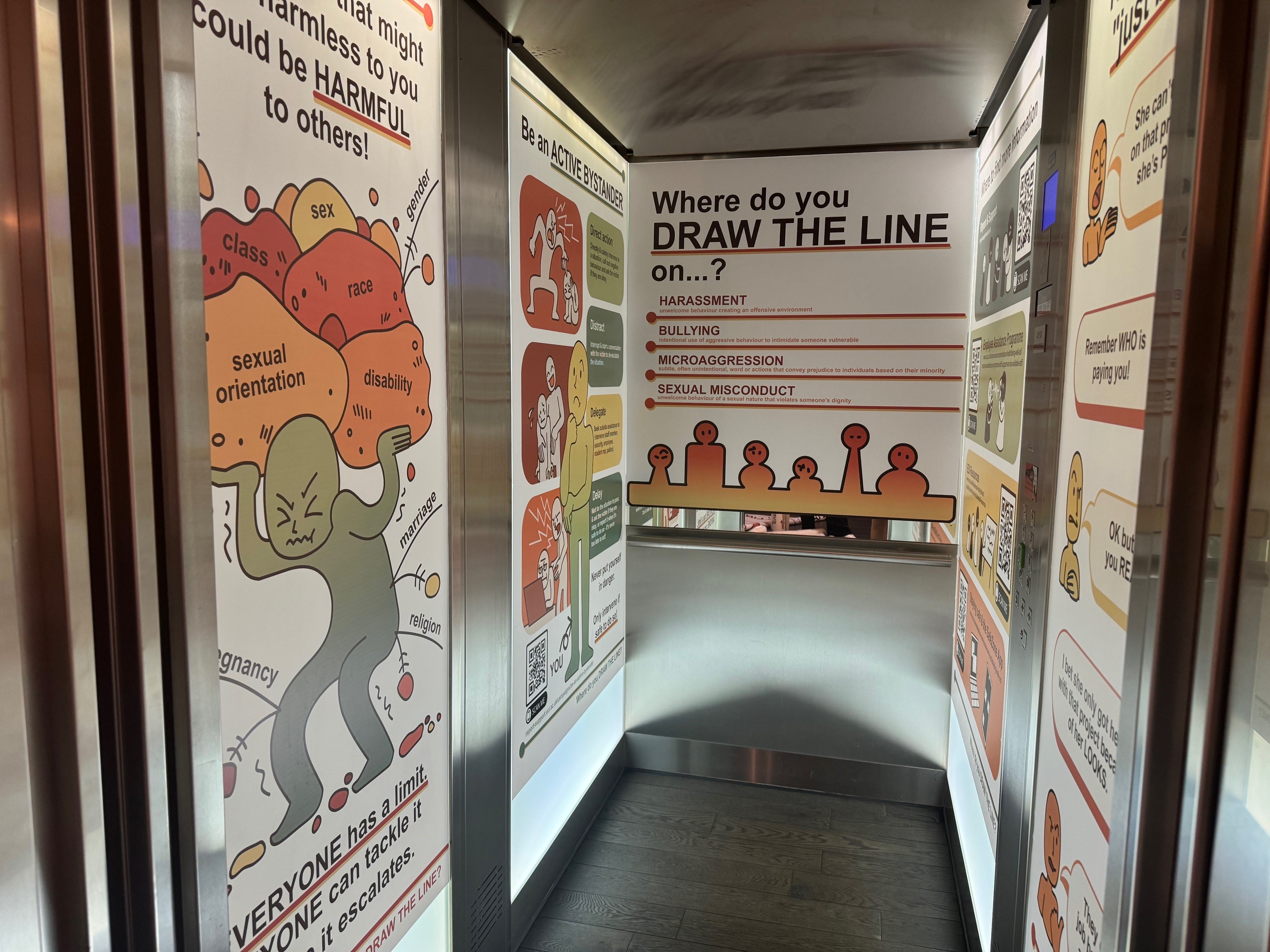
Equality, Diversity and Inclusion at SWC
We are committed to fostering an inclusive environment at SWC where every individual feels a sense of belonging and is empowered to reach their full potential.
We celebrate our diverse community, which unites a variety of talents and perspectives, and we recognise that diversity is key to maximising innovation and creativity, enabling us to tackle challenges and drive meaningful progress together.
-
EQUALITY:
Providing equal opportunities for everyone. Ensuring individuals or groups aren’t treated less favorably because of their protected characteristics.
-
DIVERSITY:
Recognising, respecting and valuing differences in people. A diverse environment allows for a culture of collaboration and creativity.
-
INCLUSION:
An individual’s experience within the workplace and the extent to which they feel valued and included. Inclusion celebrates difference and is dependent on an awareness of unconscious bias.

EDI Training, Support and Resources
SWC staff and students engage in meaningful training to help build an awareness of barriers to EDI. They have access to a range of training, resources and networks including:
- UCL EDI Training
- Taking the Lead
- UCL Staff Equalities Networks
- UCL EDI Policies and Guidance
- Report and Support
- Employee Assistance Programme
- The SafeZone App
SWC has trained Mental Health First Aiders to promote positive mental health in the workplace and signpost to additional sources of support for anyone struggling with mental wellbeing.
EDI Initiatives
We have launched several initiatives to raise awareness of issues such as bias, bullying and harassment, and sexism in the workplace. Through interactive sessions, we provide a platform for individuals to share their experiences, encourage reflection and empower staff and students to take positive action to challenge unwanted behaviours and create a more inclusive environment.
Care-full Stories
Originally piloted at Oxford University, this workshop uses storytelling to encourage reflection on the culture of care associated with animal research. Through scripted scenarios and the sharing of personal experiences, "Care-full Stories" aims to highlight the diverse perspectives and experiences of colleagues across various roles and responsibilities. By promoting open communication and encouraging participants to share their perspectives, the workshop facilitates a deeper awareness of the different dimensions of a culture of care.
Did This Really Happen?
The purpose of this campaign was to raise awareness of everyday sexism in academia and empower employees and students to speak up about inappropriate behaviours. The campaign comprised of a building takeover, displaying comic strips from the Did This Really Happen? initiative to highlight situations based on real life testimonies from the scientific community, along with an internal communications cascade sharing support information.

Bias in the Brain
The aim of this event was to unite postdoctoral researchers, professional services staff, and students in meaningful conversations about the formation, representation, and storage of biases in the brain. The panel discussion featured both internal and external experts in psychology, neuroscience, and management, fostering a scientific approach to cultivating an inclusive culture at SWC. By raising awareness of bias, we sought to enhance our recruitment practices and support our Athena SWAN initiatives, aligning with our core values of inclusivity and collaborative science. Feedback from this event has been beneficial in driving these efforts forward.

Where Do You Draw The Line?
This workshop identifies factors that might create and sustain a work environment where bullying and harassment could occur. It aims to empower colleagues to work collaboratively to address this. In addition to the workshop, we also recently ran an internal communication campaign to raise awareness that bullying and harassment occurs in academia and empower employees and students at SWC and GCNU to be active bystanders and challenge inappropriate behaviour if they witness discrimination, bullying or harassment.

In2research
At SWC we support In2research, a programme developed by social mobility charity In2scienceUK that empowers students from under-represented backgrounds to progress to postgraduate research. We provide mentoring, support away days and host eight-week paid research placements for participants.

Image credit: Amanda Summons Creative
Athena SWAN
The Athena SWAN Charter is a global framework which was established in 2005 to advance and promote the careers of women in STEMM by addressing barriers to progression. The charter was revised in 2021 to recognise work undertaken to address gender equality more broadly. It now includes all gender identities and intersectional identities in relation to representation and progression in the workplace.
SWC is committed to working to promoting gender equality and, together with the Gatsby Computational Neuroscience Unit (GCNU), received a Bronze award in 2021 in recognition of this.
We are now preparing to submit a joint application for Silver status and integral to this process is our dedicated Athena SWAN Self-Assessment Team (SAT) comprising members representing researchers, technicians, professional services staff and the student body. The role of the SAT is to identify and take forward actions relating to EDI and drive discussion and consultation with staff and students.
Recruitment and Retention
In line with UCL’s Recruitment and Selection Policy, all SWC recruitment panels comprise at least 25% female members. Shortlisting and interview panel members attend mandatory training covering EDI and unconscious bias.
We understand that career paths can take many forms, and that candidates may have taken breaks for a variety of reasons. All our job advertisements include an optional career break section to allow candidates to share the reasons for any career breaks, for example parental leave or caring responsibilities. This information helps our recruitment panel to consider circumstances that might not be visible on a CV or a list of publications. We are committed to reducing discrimination in academic related to career breaks.
All interview candidates and new employees are asked if they require any ‘reasonable adjustments’ i.e. any changes we can make to the process to remove or reduce a disadvantage relating to a disability or a neurodivergence.
Our positive recruitment strategies have successfully increased the representation of female group leaders within the organisation. A strong emphasis is placed on mentoring and coaching for early-career researchers, ensuring they receive the guidance and resources necessary to thrive in their roles.
At SWC, we prioritise the support and development of our staff through a range of mentoring opportunities and flexible working arrangements.
Carers Fund
To further break down career barriers we are piloting a supplement to support Early Career Researchers and PhD students to continue scientific careers whilst also being able to start a family or care for other dependents.